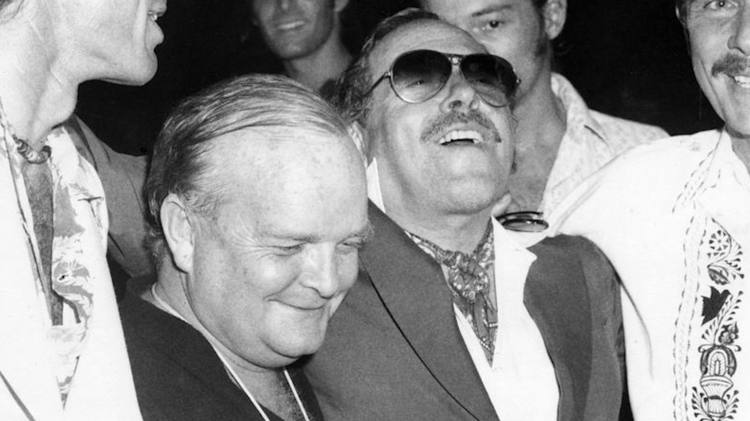
Truman & Tennessee: An Intimate Conversation is a poetic dual-bio documentary by filmmaker Lisa Immordino Vreeland, about two milestones of American literature. The chronicle of the two great writers blends, virtuously, original footage of their interviews, with a fictional dialogue where Jim Parsons is Truman Capote and Zachary Quinto is Tennessee Williams. Also extracts from the film adaptations of the two authors’ works are gently interwoven in this cinematic gem.
The reconstruction of their biographies spans from their early days of friendship to their final, procrustean critiques of each other. This is a story about a friendship and logophilia — the love for words. Capote and Williams lived parallel lives and struggled with a lifelong pursuit of creativity, self-doubt, addiction, and success. They were anti-heroes in their era, but history eventually transformed the into icons. However, Immordino Vreeland’s film goes beyond their status of notoriety, presenting two men with their lived experience that was channelled into what they wrote. This filmic memento serves as a reminder of the people and experiences that were behind their witty and humanising words.
Truman Capote’s works have been adapted into more than twenty films and television dramas. His most acclaimed publications are undoubtably Breakfast at Tiffany’s, In Cold Blood and Other Voices, Other Rooms. The themes that distinguished Capote, concern his dissection of the dark sides of human nature, the sense of belonging, and self-confrontation. As Holly Golightly would put it: “No matter where you run, you end up running into yourself.” At the same time he strongly enhanced how chimera plays an important and concussive role in existential explorations: “Imagination, of course, can open any door — turn the key and let terror walk right in.”

Tennessee Williams’ plays are enduring classics of American theatre and have been performed worldwide, as well as having been adapted for the silver screen. A Streetcar Named Desire, Cat on a Hot Tin Roof, and The Glass Menagerie, are timeless legends of theatrical drama. Williams’ topics of scrutiny were considered taboo during his time, for instance, sexuality, mental fragility, addiction, dysfunctional families were never discussed openly. His stories always had that element of dreamlike melancholy, with which every person could easily identify — just like his most famous character Blanche DuBois, the Southern Belle who has fallen from grace, who had the desperate need to surround herself with gentleness, as she said: “I don’t wan’t realism. I want magic!” or “I have always depended on the kindness of strangers.”
These two writers shared a similar sensitivity that would transpire in their oeuvres, because of the similar life hurdles they had to overcome. Capote and Williams were from the southern part of the United States, the former from Louisiana, and the latter from Mississippi. Both had troubled childhoods with parents who were not there for them — Capote was born as Truman Streckfus Persons, and eventually adopted the surname of his mother’s second husband. They were both children of alcoholics and had this yearning to write at a very young age. The gay literates, were further united by experiencing their sexuality during an era in which the psychiatric community regarded homosexuality as a mental illness. In the Fifties, even though the Homophile movement was pioneering in giving a voice to gay activists, the prejudices surrounding queer people would force them to navigate life in the closet, maintaining the feigned façade of the hetero-norm — something that emerges in Tennessee Williams’ plays.

As we listen to the real Capote and Williams on talk shows, hosted by Dick Cavett or David Frost, and eventually get catapulted in the fictional dialogue read by Parsons-Capote and Quinto-Williams, what stays are the themes they both explored, each in his own literary style, such as the role of memory, transience, and being an outsider. Most importantly, these two friends, despite the fame they conquered, never lost their grasp on an authentic depiction of realism.
Director Lisa Immordino Vreeland has shown utter sensibility in the real-life idols she has evoked on film, with her works Diana Vreeland: The Eye Has To Travel (2012), Peggy Guggenheim: Art Addict (2015), Love, Cecil (2017) and the short documentary series Art of Style (2018). This latest work of hers, Truman & Tennessee: An Intimate Conversation, is a lyrical tribute to the world of literature, through the cinematic medium, that glorifies two trailblazing writers, whose stories and characters have shaped the sensitivity of their readers.
Final Grade: A

